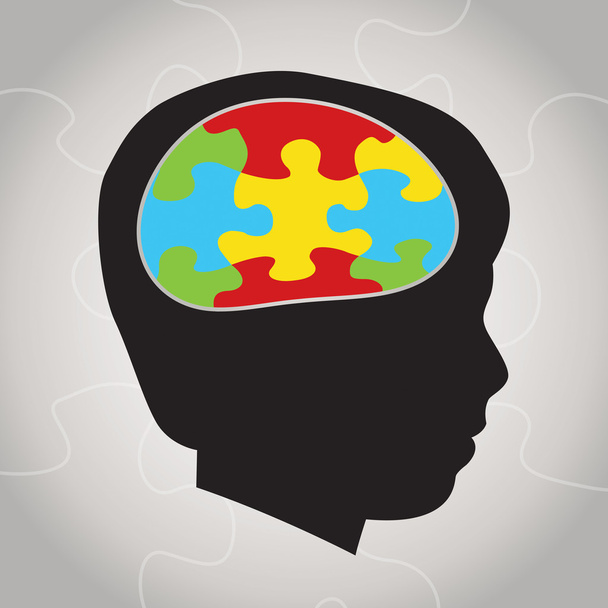Autism, or autism spectrum disorder (ASD), is a developmental disorder that affects communication, social interaction, and behavior. It is a neurodevelopmental disorder, meaning it affects the development of the brain and nervous system.
Key points and information about autism
Here are some key points and information about autism, as well as some recent articles related to the topic:
- Symptoms: Autism can manifest in a variety of ways, but some common symptoms include:
- Difficulty with social interaction and communication
- Repetitive behaviors or routines
- Sensory sensitivities
- Difficulty with verbal and nonverbal communication
- Difficulty with social and emotional cues
- Causes: The exact cause of autism is not yet known, but it is believed to be a combination of genetic and environmental factors. Some recent studies have suggested a link between autism and prenatal exposure to air pollution or certain chemicals.
Autism Statistics: Prevalence, Gender Disparities, and Minority Communities
- Characteristics: Some of the characteristics of autism include difficulty with social interaction, repetitive behaviors or interests, difficulty with communication, and sensory processing differences.
- Diagnosis: Autism can be diagnosed by a qualified healthcare professional through a variety of assessments and evaluations. Early diagnosis and intervention can improve outcomes for individuals with autism.
- Causes: The causes of autism are not yet fully understood, but research suggests that both genetic and environmental factors may play a role.
- Treatment: While there is no cure for autism, there are many treatment options available that can help individuals with autism manage their symptoms and improve their quality of life. These can include therapies such as speech therapy, occupational therapy, and behavioral therapy.
- Advocacy: Advocacy for individuals with autism is an important part of creating a more inclusive society. Organizations such as the Autism Society and Autism Speaks work to raise awareness and support for individuals with autism and their families.
Some articles and resources to learn more about autism:
- “New study links air pollution to increased autism risk” (CNN, January 2023)
- “Researchers identify gene mutations associated with autism” (Science Daily, December 2022)
- “Virtual reality therapy shows promise for children with autism” (Medical News Today, November 2022)
- “Study finds possible link between maternal stress during pregnancy and autism risk” (NPR, October 2022)
- “Gut microbiome may play a role in autism” (Science News, September 2022)
Overall, autism is a complex disorder that can have a significant impact on individuals and their families. While there is still
- Autism Society
The Autism Society is a leading organization in the United States that provides advocacy, support, and resources for individuals with autism and their families.
- Autism Speaks
Autism Speaks is a global organization that advocates for individuals with autism and supports research into the causes and treatments of autism.
- Centers for Disease Control and Prevention (CDC) – Autism
The CDC provides information about autism, including data on autism prevalence and resources for diagnosis and treatment.
- National Institute of Mental Health (NIMH) – Autism Spectrum Disorder
The NIMH provides information about autism, including research into the causes and treatments of autism.
- Mayo Clinic – Autism spectrum disorder
The Mayo Clinic provides information about the symptoms, causes, and treatments of autism.
Treating Autism: Therapies and Interventions to Improve Quality of Life
Statistics: According to the Centers for Disease Control and Prevention (CDC), approximately 1 in 54 children in the United States is diagnosed with autism. Boys are more likely to be diagnosed with autism than girls, with a ratio of around 4:1. Autism is also more commonly diagnosed in children from minority and underserved communities. While there is no definitive answer to why these disparities exist, some possible reasons may include differences in access to healthcare and diagnosis.
Causal Relationship: While the exact cause of autism is not yet fully understood, research has identified a range of genetic and environmental factors that may contribute to the development of autism. Studies have found that autism is highly heritable, meaning that it tends to run in families. However, the genetic factors involved in autism are complex and not fully understood. Environmental factors, such as prenatal exposure to certain chemicals or infections, have also been linked to an increased risk of autism. However, more research is needed to fully understand the relationship between these factors and the development of autism.

Advancing Autism Research: Promising Developments and New Frontiers
Treatment: While there is no cure for autism, there are a range of treatments and therapies available that can help individuals with autism manage their symptoms and improve their quality of life. These can include behavioral therapy, speech therapy, occupational therapy, and medication to address specific symptoms such as anxiety or ADHD. Research into new treatments and interventions for autism is ongoing, with many promising developments in areas such as gene therapy and brain stimulation.
In summary, while there is much that is still not fully understood about autism, ongoing research and advocacy are helping to improve our understanding of this complex disorder and find new ways to support individuals with autism and their families.
